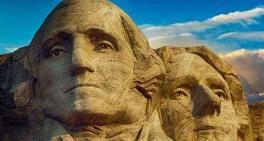Supreme Court rules against oil drilling platform workers
National News
The Supreme Court ruled unanimously Monday against workers on oil drilling platforms off California who argued they should be paid for the off-work time they spend on the platform, including sleeping.
The high court said that federal law applies to the workers and doesn’t require them to be paid for nonworking time spent at their work location on the Outer Continental Shelf. The workers had argued that California law, which would require them to be compensated for that time, should apply.
Justice Clarence Thomas said in an opinion that “federal law is the only law” that applies on the Outer Continental Shelf and “there has never been any overlapping state and federal jurisdiction there.” The question, he said, was whether federal law addressed the question of off-work time spent on the oil rig. He said it did and didn’t require the workers to be paid.
The case before the Supreme Court involved Brian Newton, who worked on drilling platforms off California’s coast near Santa Barbara from 2013 to 2015. Like others living and working on the platform, he worked 14-day shifts, spending 12 hours working and 12 hours off work but on standby, where he could not leave the platform.
In 2015, Newton filed a class action lawsuit arguing that his former employer, Parker Drilling, was violating California law by, among other things, failing to pay workers for the time they spent on standby, including the time they spent sleeping.
In making their ruling, the justices had to grapple with a 1953 law called the Outer Continental Shelf Lands Act. It says federal law applies on the Outer Continental Shelf. But the law also says the laws of the adjacent state are federal law to the extent they are “applicable and not inconsistent” with other federal law. If “federal law applies to a particular issue, state law is inapplicable,” Thomas wrote.
Related listings
-
Supreme Court sides with Alabama company in patent dispute
National News 06/14/2019The Supreme Court sided Monday with an Alabama technology company over the U.S. Postal Service in a patent dispute.The dispute before the justices had to do with U.S. Patent No. 6,826,548. That's the patent Birmingham-based Return Mail has for a syst...
-
The Latest: New Mexico court blocks straight-ticket option
National News 09/14/2018The New Mexico Supreme Court is blocking a ballot option that would have allowed voters to select candidates from one particular party in all races by marking a single box. The court made its decision Wednesday after listening to oral arguments ...
-
N Carolina Supreme Court race lawsuit returning to court
National News 08/05/2018A North Carolina Supreme Court candidate's lawsuit against Republican legislators over a law preventing him from having his party listed on November ballots is returning to court.A judge scheduled a Wake County hearing Monday to consider requests by ...

Processing Change for Certain Form I-730 Petitions
USCIS changed the processing location for certain Form I-730, Refugee/Asylee Relative Petition, filings. Previously the Service Center Operations Directorate processed these filings. Now, the International Adjudications Support Branch (IASB) in the Refugee, Asylum, and International Operations Directorate will process the petitions filed by individuals who were admitted to the United States as refugees. Petitioners and/or accredited representatives who file refugee-based Form I-730 petitions will receive further instructions when IASB receives their filings. Form I-730 petitions filed by persons granted asylum will not be affected by this change. The mailing instructions for Form I-730 remain the same. Petitioners should continue to follow the Where to File directions on the Form I-730 page. This policy update is consistent with the Department of Labor’s (DOL’s) Standard Occupational Classification system. DOL defines economists as people who conduct research, prepare reports, or formulate plans to address economic problems related to the production and distribution of goods and services or monetary and fiscal policy. Economists may collect and process economic and statistical data using sampling techniques and econometric methods.




